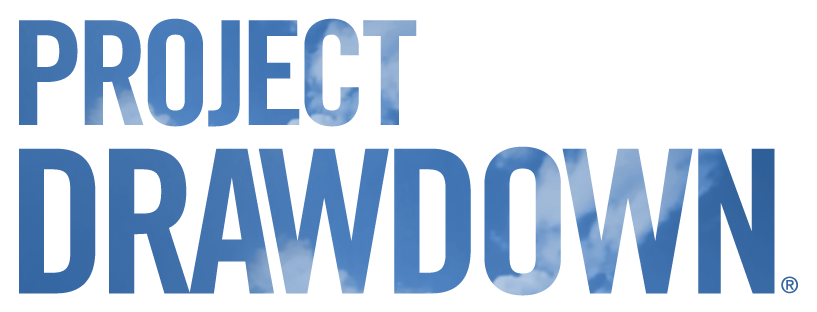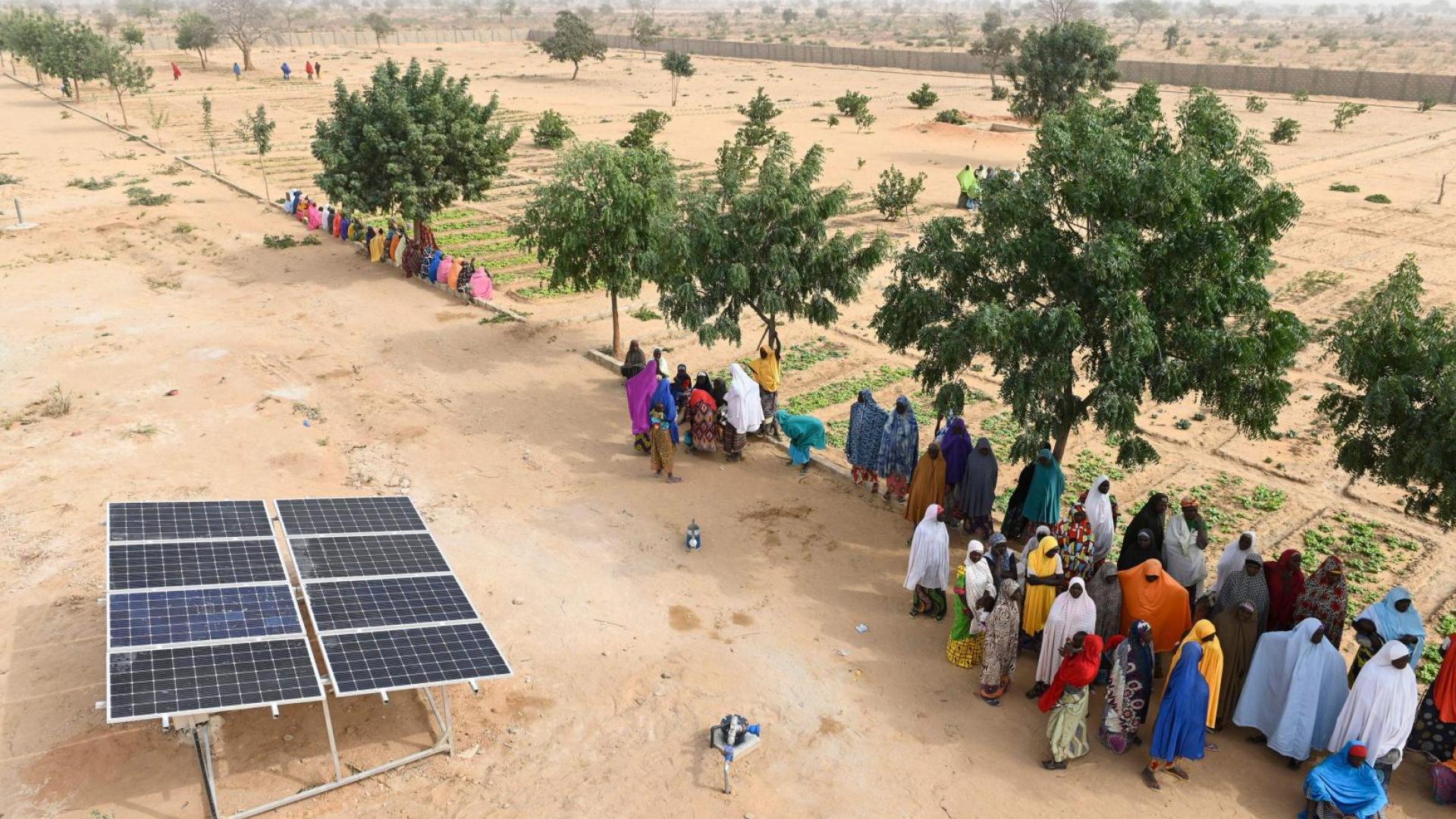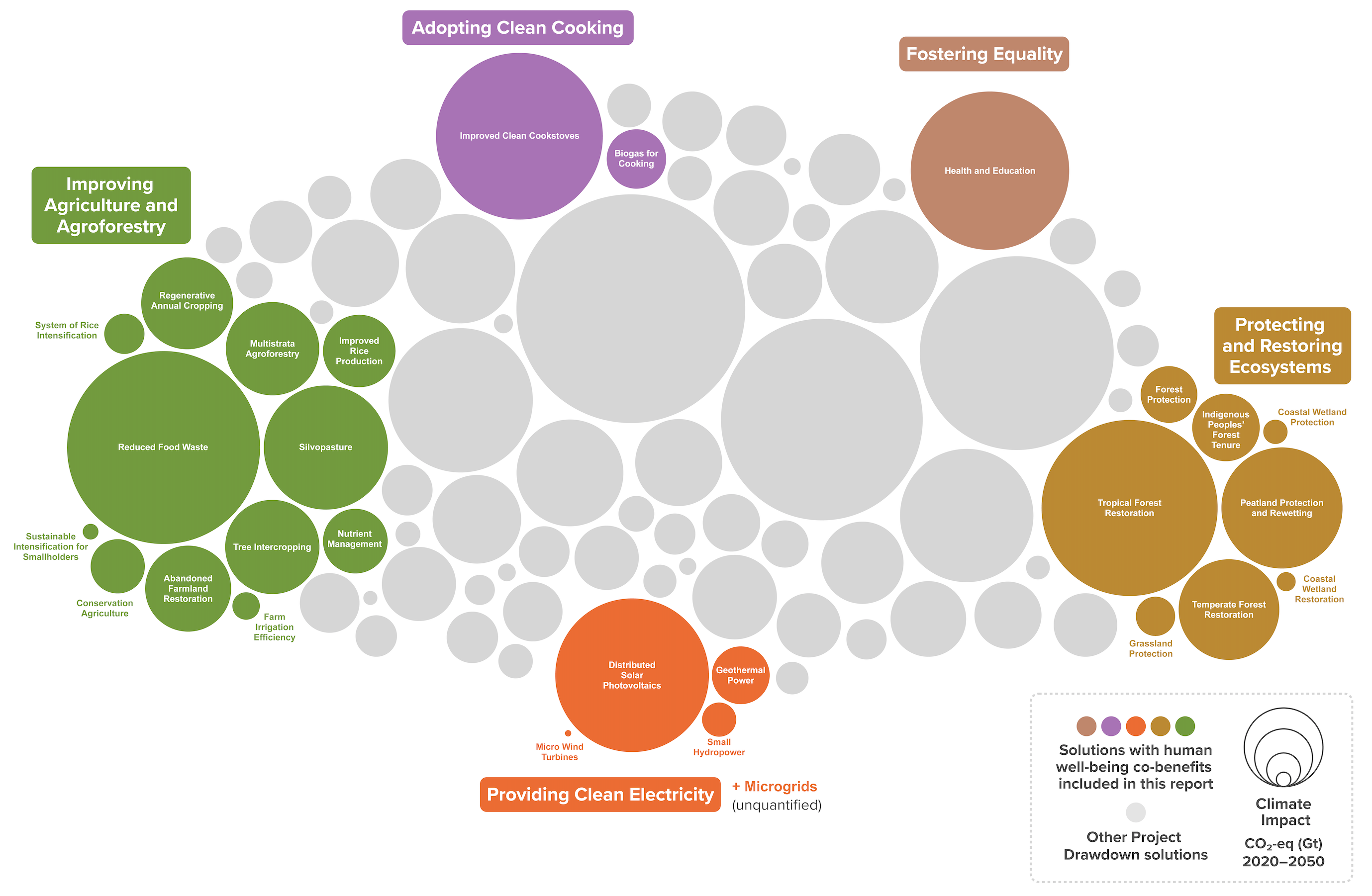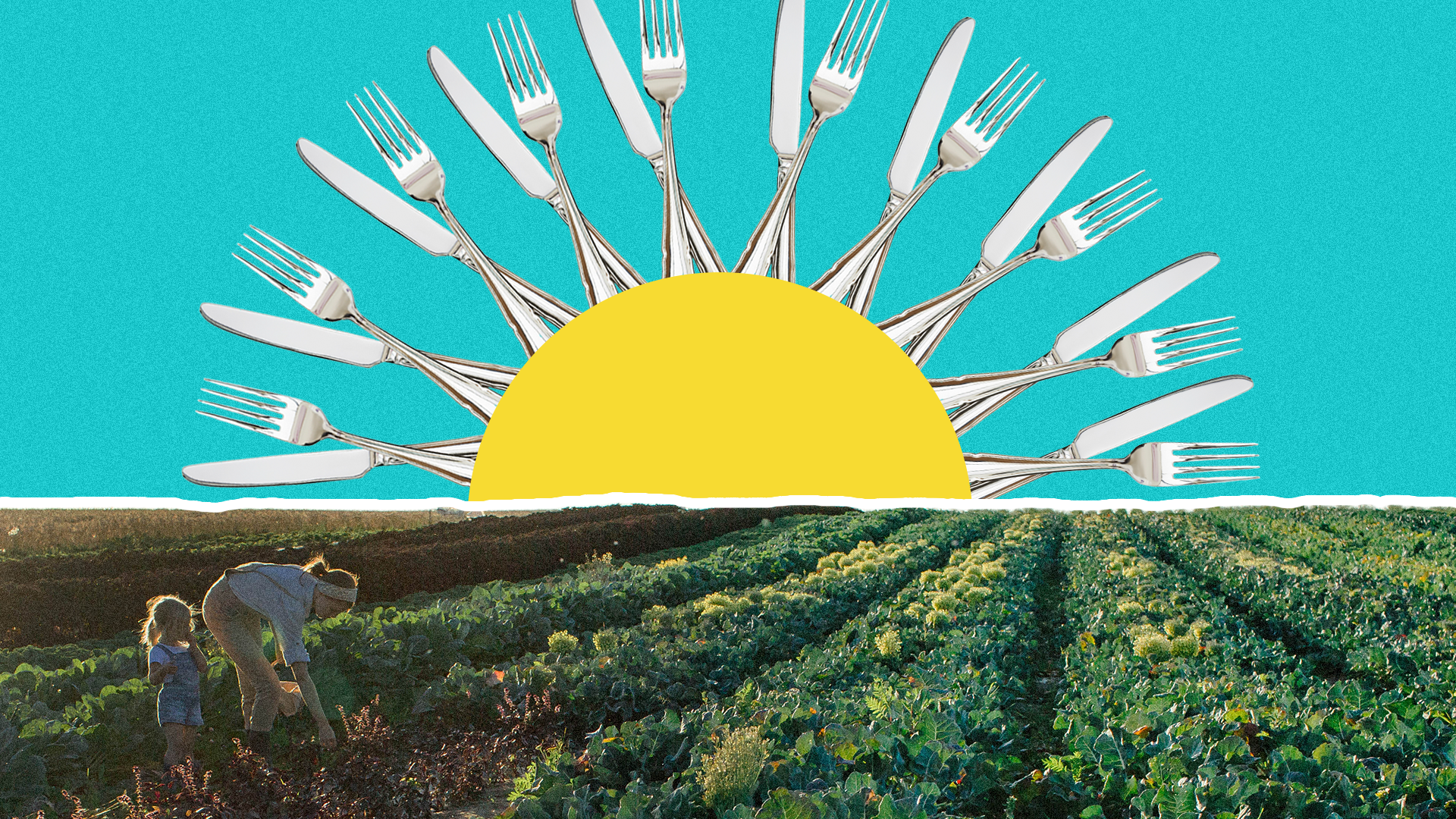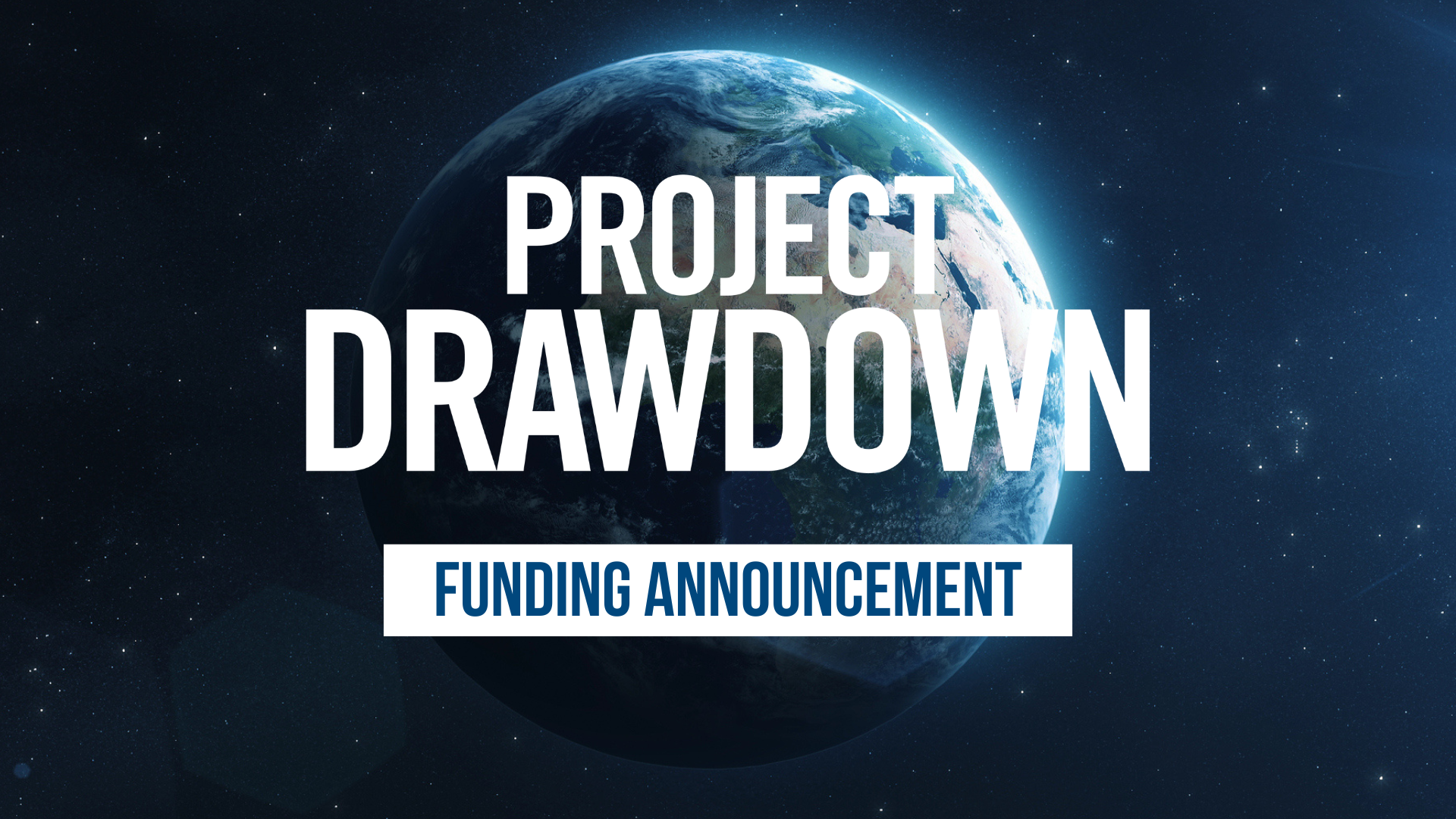In part one of the webinar series, global experts in climate-smart development, environmental health, clean energy, and natural resource management discussed how climate solutions focused on Improving Agriculture and Agroforestry, Providing Clean Electricity, and Adopting Clean Cooking can contribute to improving human well-being and alleviating poverty and yield substantial socioeconomic, health, equity, and environmental gains.
Presenter: Yusuf Jameel, Research Manager, Drawdown Lift, Project Drawdown
Moderator: Yolande Wright, Global Director Child Poverty, Climate and Urban, Save the Children
Host: Kristen P. Patterson, Director, Drawdown Lift, Project Drawdown
Panelists:
Jill Baumgartner, Associate Professor, Institute for Health And Social Policy & Department of Epidemiology, Biostatistics and Occupational Health, McGill University
Ademola Braimoh, Senior Natural Resources Management Specialist, Agriculture Global Practice, World Bank
Glory Oguegbu, Founder & CEO, Renewable Energy Technology Training Institute (RETTI) and Climate Smart Nigeria
Interpreters: Sabrine Bayar and Manel Khammouma
